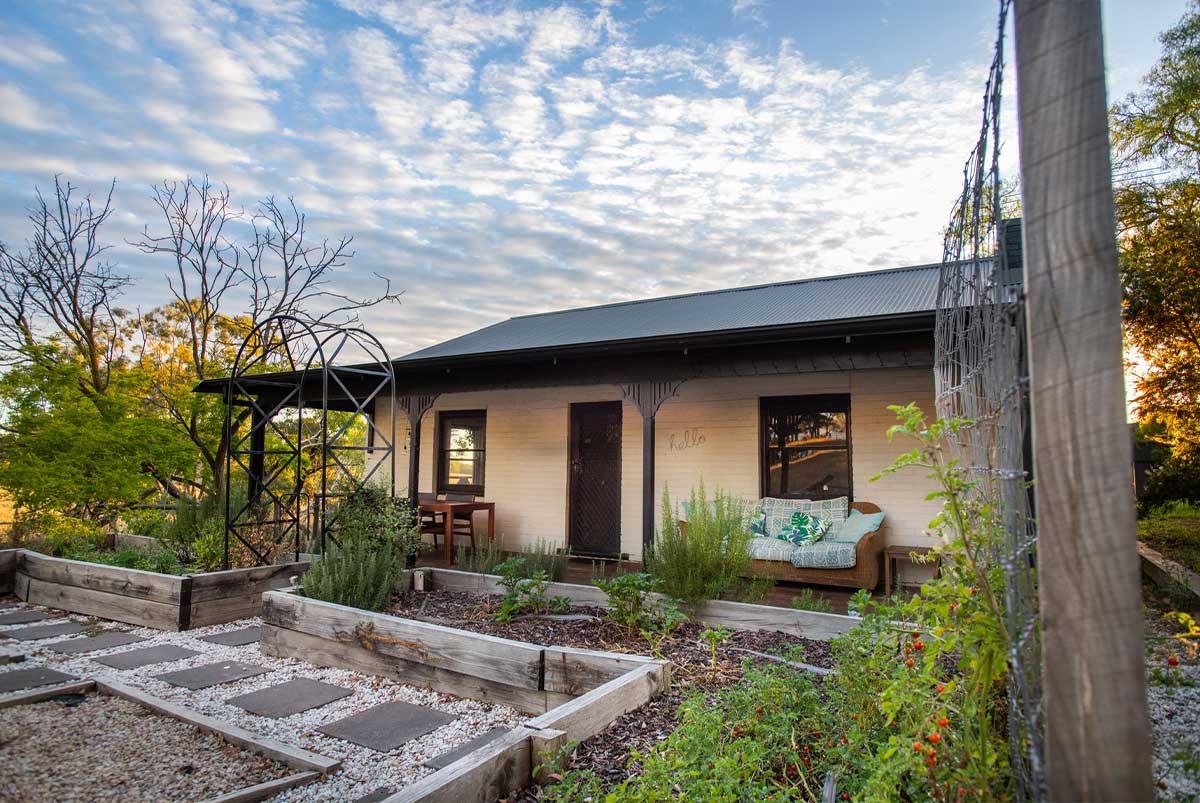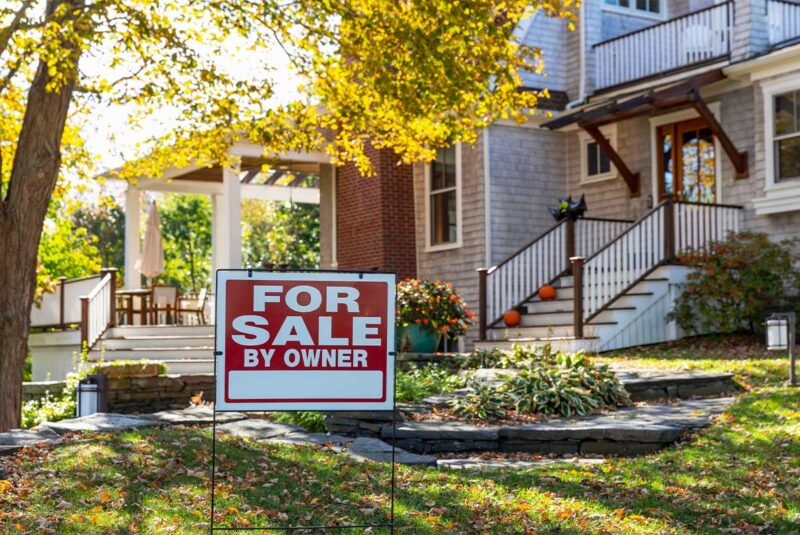Ready To Buy a Home?
Get Approved to Buy a Home
Rocket Mortgage® lets you get to house hunting sooner.
One of the most challenging aspects of buying a home can be finding the right property at the right price. Buyers in search of serious bargains often turn to distressed properties to find an affordable home.
And while you can get a good deal on a distressed property – where there is a reward, you’ll often find risks. We’ll go over everything you need to know to help you decide whether purchasing one of these properties is worth the risk.
What Is Distressed Property?
Explore Your Mortgage Options
What are you looking to do?
Distressed property is a home at risk of foreclosure because the owner has fallen behind on mortgage or tax payments. Bargain-hunting buyers and investors seek these properties out because of the potential to purchase them at a discount.
However, they can be risky investments. These homes are typically sold as-is. If the property owner failed to maintain the home and it fell into disrepair, rehabbing it may cost more than you bargained for.
Types of distressed property
There are three distressed property types:
- Foreclosure: Foreclosure is a legal process through which a lender or a local government repossesses a home after the owner defaults on their mortgage/taxes. Once the lender or government agency takes possession of the home, they often try to sell it at auction.
- Real estate owned (REO): For mortgage foreclosures, if the lender can’t sell the property at auction, it becomes an REO property. Banks usually want to sell REO properties as quickly as possible to try and offset their losses.
- Short sale: A short sale happens when a homeowner is underwater on a mortgage (they owe more on their mortgage than the home is worth). . With a short sale, the lender allows the house to sell for less than the seller owesand the seller avoids the foreclosure process.
How To Find Distressed Property
Distressed properties tend to be the exception – not the rule. According to an April 2023 survey by the National Association of REALTORS®, 1% of home sales were distressed.[1] That said, considering the seasonally adjusted annual rate of April home sales was 4.28 million, tens of thousands of distressed homes were sold.[2]
Distressed properties are out there. And here are some tips to help you find them:
- Work with a real estate agent: Your real estate agent should be an expert in their local market. In addition to their network and expertise, they’ll have access to the multiple listing service (MLS).
- Search online: Big banks usually have dedicated search pages for REO listings. Many popular websites for house hunting also include foreclosures in their databases.
- Put in the legwork: You can go old-school and make the rounds of the neighborhoods you’re interested in. Look for signs that a home may be distressed, such as peeling paint or an overgrown lawn.
Should You Buy a Distressed Property?
We’ve put together a list of pros and cons to help you decide whether pursuing a distressed property makes sense for you.
PROS of Buying Distressed Property👍
One of the biggest perks is purchasing a home at a discounted price, which will keep your monthly mortgage payments low in the short term.
A property’s bargain basement pricing may get you into a neighborhood you wouldn’t have been able to afford, allowing you to improve your quality of life and helping with home appreciation over time.
Distressed homes can be good investment properties. If you buy a home for a bargain and make all the repairs, you can flip it for a profit or turn it into an income-generating rental.
CONS of Buying Distressed Property👎
You may not be able to get a home inspection done before purchasing a distressed property. That’s especially risky because distressed properties are typically sold as-is. You’ll be on your own for any necessary repairs – which may be extensive and expensive.
Even with an inspection, you’ll need to decide whether what you save on the home’s price is worth more than what you pay in home repair costs.
Who doesn’t love a bargain? The potential of a good deal often leads to fierce competition for distressed properties, especially at public auctions.
This may seem counterintuitive, mainly because everyone involved is motivated to get a deal done ASAP, but distressed properties can take significantly longer to close than other properties. It’s not uncommon for the home selling process to take 6 months or longer.
Financing Options for Distressed Property
A common misconception is that you must make an all-cash offer to purchase distressed properties. The truth is that you can secure financing – with one caveat: the stage of the foreclosure process the home is in.
Many states require all-cash payments if the home is selling at auction. If the house is a short sale or REO property, you may be able to finance the property. Here are some popular financing options:
- Conventional loan: As long as the home is in livable condition, you can purchase a distressed property with a conventional loan.
- FHA 203(k) loan: The Federal Housing Administration (FHA) offers a 203(k) loan, also known as the federal fixer-upper loan. The program helps first-time home buyers purchase a home and afford repairs.
- Fannie Mae HomePath®: The Fannie Mae HomePath® program helps consumers purchase foreclosed homes.
Distressed property FAQs
Technically, it’s any sale where the owner is facing financial trouble. It usually happens when an owner faces the risk of foreclosure because they fell behind on their mortgage payments.
Distressed sale is a broader term. A homeowner can be in distress without being in foreclosure. Foreclosure is a legal process through which a lender repossesses a home after the owner defaults on their mortgage.
Depending on the state, you may need to pay cash for the distressed home you purchase at auction. If you aren’t purchasing the home at auction, you may be able to finance the purchase.
Final Thoughts on Distressed Properties
Distressed properties can be a great opportunity for prospective home buyers to snag a deal. But you likely won’t find a distressed property on every corner. You’ll need to put some time and effort into finding these homes. And while there are risks associated with purchasing property as-is, when you find the right one, it can be the key that unlocks the door to homeownership or a smart investment.
Take the first step toward buying a home.
Get approved. See what you qualify for. Start house hunting.
The Short Version
- Distressed property is a home at risk of foreclosure because the owner has fallen behind on mortgage payments
- Working with a real estate agent is a great way to find distressed property. You can also search bank and lender websites for real estate owned (REO) listings
- You don’t need cash to purchase a distressed property. Conventional loans and government-backed loans are popular financing options
National Association of REALTORS®. “April 2023 REALTORS® Confidence Index Survey.” Retrieved June 2023 from https://cdn.nar.realtor//sites/default/files/documents/2023-04-realtors-confidence-index-05-18-2023.pdf?_gl=1*14caa5w*_gcl_au*MTczMDE1MDA1Ni4xNjg0MjY3MDc2
National Association of REALTORS®. “Existing-Home Sales Faded 3.4% in April.” Retrieved June 2023 from https://www.nar.realtor/newsroom/existing-home-sales-faded-3-4-in-april




